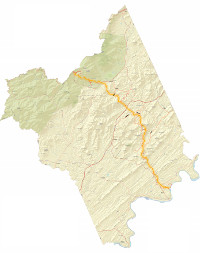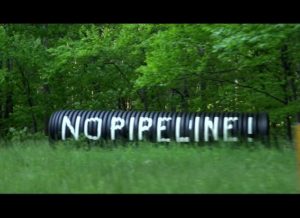
- This event has passed.
FERC Public Hearing on ACP DEIS – Farmville
February 21, 2017 @ 5:00 pm - 9:00 pm
FERC public hearing in Farmville on the Draft Environmental Impact Statement for the ACP. This is one of a series of meetings in our area.
FERC says, “If you wish to provide verbal comments, the Commission staff will hand out numbers in the order of your arrival. Number distribution will be discontinued at 8:00 p.m. in order to ensure all comments are received by closing time. Comments will be taken until 9:00 p.m.”
There will be a 3-minute time limit for commenters. Assuming 15 minutes for preliminaries at the start and with perhaps a minute between speakers, that means a maximum of 60 speakers. At the FERC scoping hearing in Nelson County in March 2015, only 78 of the 203 people who signed up were able to speak before that meeting ended at 10:45 pm. Since we know from our experience at the 2015 hearings in Nelson and elsewhere that Dominion will try to front-load the commenters with pipeline supporters (many from out of area), come early to sign up to speak!
Verbal comments will be recorded by a FERC-provided court reporter, and the transcripts of comments will be posted in the ACP docket on the publicly accessible FERC Web site. FERC-posted transcripts from earlier hearings were often incomplete and inaccurate; we recommend you provide the court reporter with a written version of your comments, and that you also submit them directly to FERC following the hearing.
Friends of Nelson welcomes event listings from all related groups who are working to oppose the Atlantic Coast Pipeline. To have your event listed on our calendar, please contact us at friendsofnelsonweb@gmail.com.






